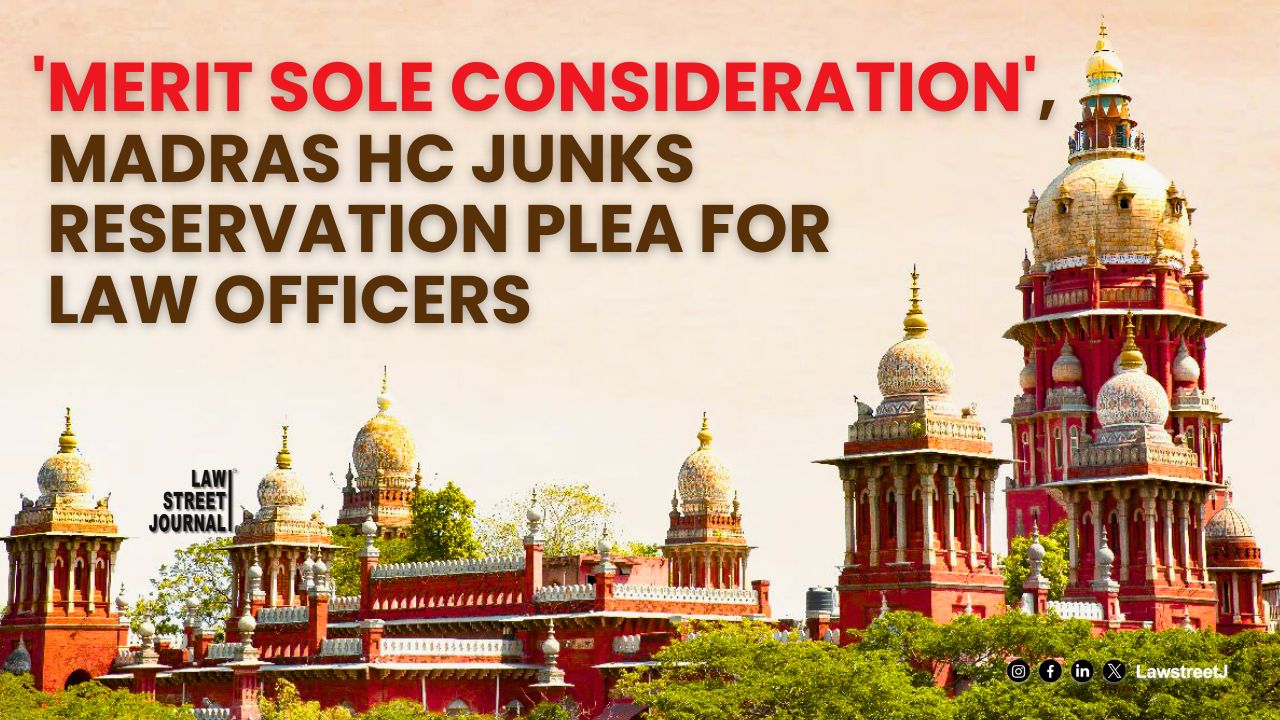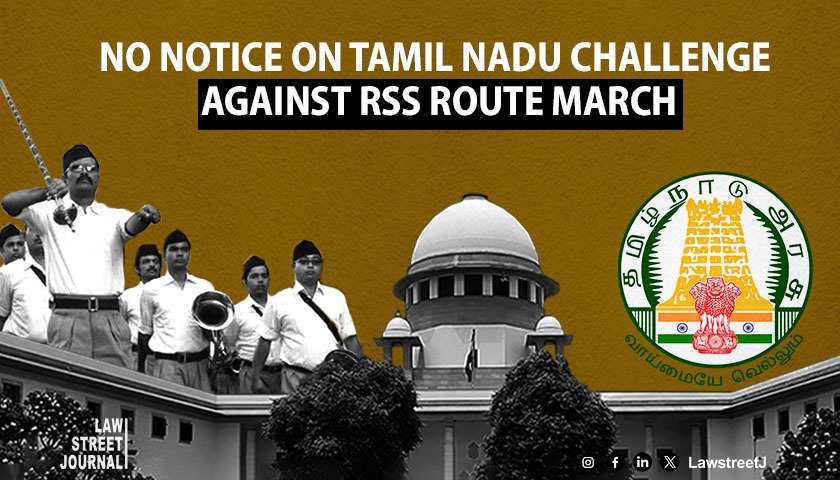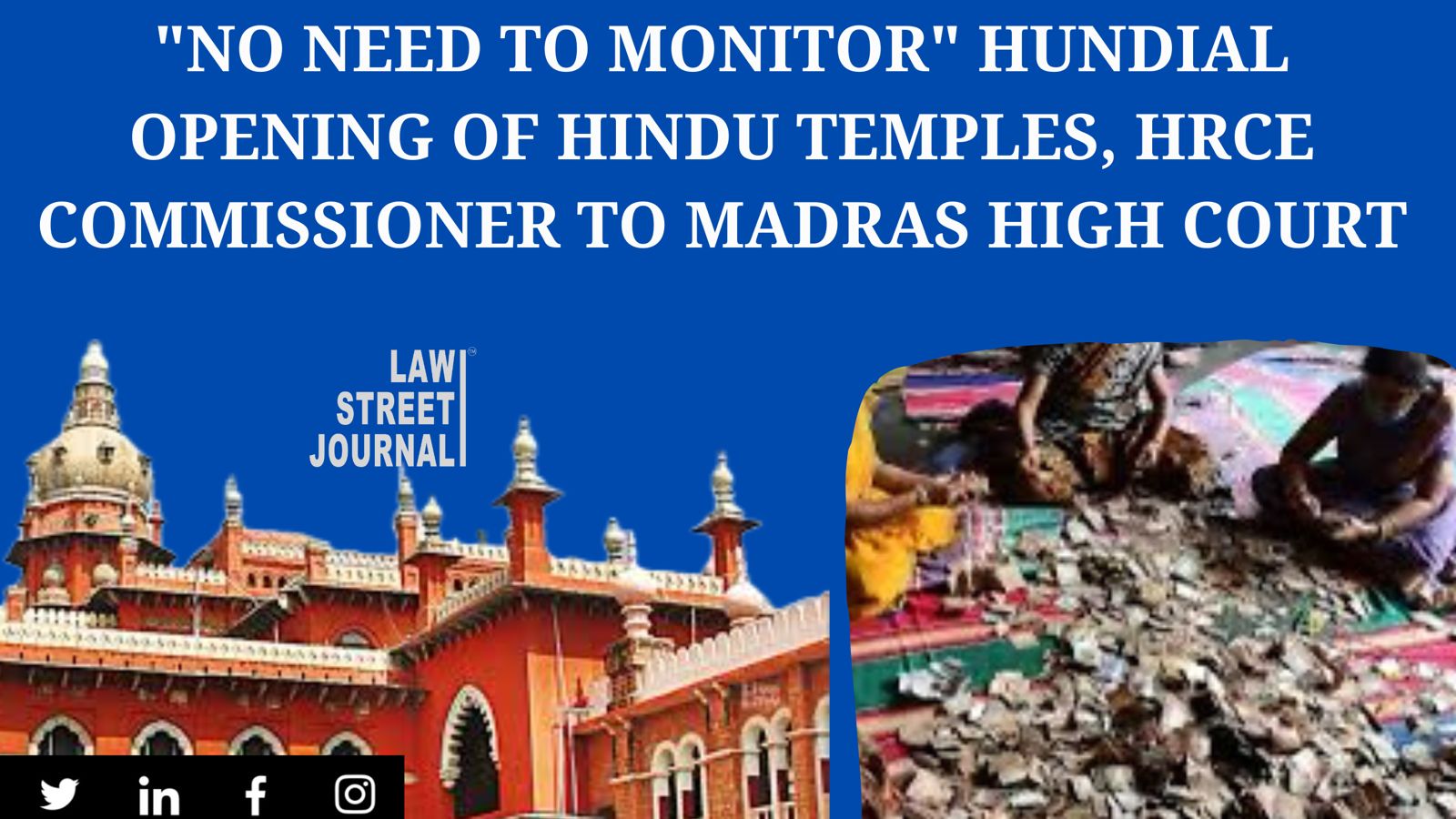CHENNAI: Since the post of a law officer is not a civil post, there is no requirement of providing reservation for those posts. Merit should be the sole consideration for such appointments, the Madras High Court has held.
It is the obligation and the duty of the government to protect the public interest to its optimum extent and in the best possible manner. This duty mandates the government to engage the most proficient, competent and capable persons to represent it, inter alia, the public interest. In view of that, while selecting the Law Officers, merit ought to be the sole consideration," the bench of Chief Justice Sanjay V Gangapurwala And Justice D Bharatha Chakravarthy held.
The Court was hearing a challenge to the Appointment of Law Officers of High Court of Madras and its Bench at Madurai (Appointment) Rules, 2017 [2017 Rules]. The plea sought to frame new rules to ensure transparency, adequate representation to women, Scheduled Castes, Scheduled Tribes and minorities and to issue public notification for inviting applications from all the eligible candidates for appointment as law officers.
It was the petitioners case that the 2017 Rules nowhere provide for reservation in appointment. They contended that even if it is assumed that Law Officers hold temporary appointments, reservation for SCs and STs is provided in all temporary appointments except the appointments which are for less than 45 days.. It was further pointed out that that reservation is not followed in the appointment of law officers in the High Court of Madras and its bench at Madurai.
The reason given was that law officers are engaged on contractual basis.
'While appointing Law Officers, no written test or interview is conducted. No proper scrutiny of applications is made. Out of 2485 applicants, 92 are selected and appointed. The selection process was not transparent, the basis upon which the selection was made and the procedure followed was not at all revealed by the government,' the petitioner alleged.
The Advocate General appearing for the Respondent submitted that the post of a Law Officer is not a civil post and a Law Officer is not in state employment.
He submitted that Law Officers are are not employees of the State Department, but professional practitioners engaged to specific work by using their legal expertise. Referring to the case of Indra Sawhney versus Union of India, wherein it was held that in the performance of certain of duties or in certain services and positions, it may not be advisable to provide for reservation, he argued that the post of Law Officers is such a position.
It was further submitted that law officers in Tamil Nadu are appointed by following the 2017 Rules.
Courts View
The Court noted that a Selection Committee was constituted by the government to select Law Officers.
The Selection Committee comprises the Advocate General as the Chairman; the Secretary (Public) Member; the Secretary (Home) Member; and, the Secretary (Law) Member. The Selection Committee has to be satisfied about the qualification, experience, integrity, reliability, appearance in court, advocacy, legal acumen, quality of drafting pleadings, reported and unreported judgments, academic background, general reputation and antecedents of the candidates.
The Court pointed out that the relationship between an advocate and his client is uberrima fides, i.e., one of active confidence and trust. The government is the custodian of public interest.
It cannot be held that reservation vertical and/or horizontal needs to be provided while appointing the Law Officers by the government. The procedure is laid down. The procedure laid down does not suffer from the vice of arbitrariness, nor it can be said that the procedure is not transparent, the Court added.
The relationship between the government and the Law Officer is purely a professional relationship and not that of a master and servant, the Court further explained. The Law Officers engaged by the government, during their performance of the duty, are not holding any civil post. They are also not government servants and/or government employees. The appointment of these Law Officers is at the pleasure of the government, it observed.
As the Law Officers engaged by the government do not hold a civil post, nor the relationship of master and servant exists, Article 16(4) of the Constitution of India wont be applicable, the Court categorically said while dismissing the plea.



![Madras High Court Directs Tamil Nadu Government to Ensure Quota for Transgenders in Local Body Elections [Read Order]](/secure/uploads/2023/08/lj_2507_7a03d113-08b1-4670-b6fb-9058aee481d0.jpg)








